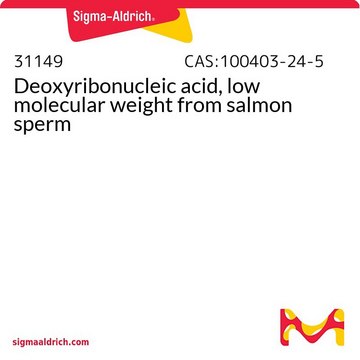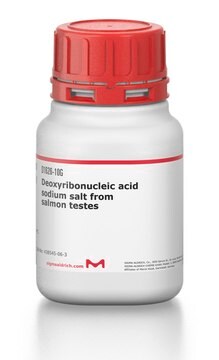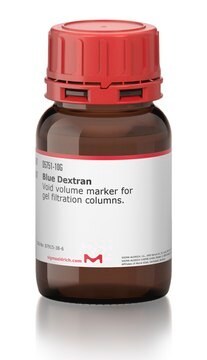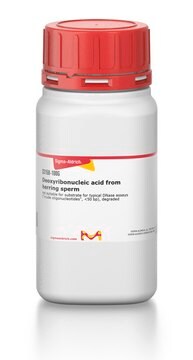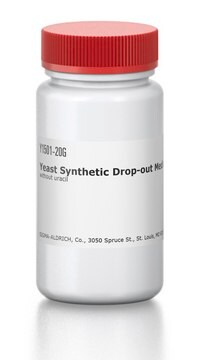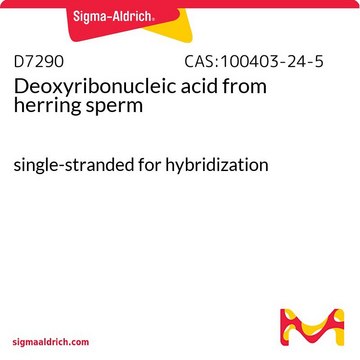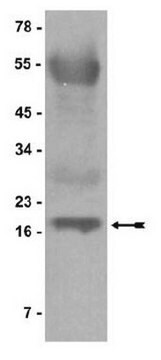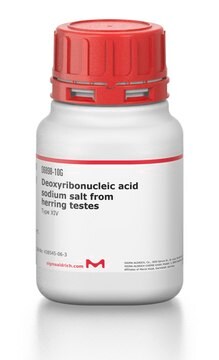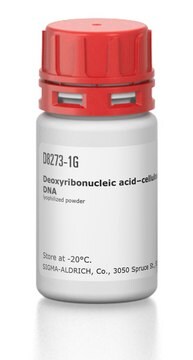D9156
Deoxyribonucleic acid, single stranded from salmon testes
For hybridization
Synonym(s):
single-stranded template DNA
About This Item
Recommended Products
biological source
fish testis (salmon)
Quality Level
grade
for molecular biology
Assay
9-11 mg/mL (DNA concentration)
form
solution
concentration
10 mg/mL in H2O
shipped in
dry ice
storage temp.
−20°C
Looking for similar products? Visit Product Comparison Guide
Related Categories
General description
Application
In order to decrease any non-specific hybridization of the probe to a substrate, blocking agents must be used. Generally, a combination of blocking reagent, detergent, and denatured, fragmented DNA is used to accomplish this. Sigma offers sonicated, denatured DNA from a variety of species for use as a blocking agent in Northern and Southern blotting and other nucleic acid hybridization techniques.
Preparation Note
Other Notes
related product
Storage Class Code
11 - Combustible Solids
WGK
WGK 3
Flash Point(F)
Not applicable
Flash Point(C)
Not applicable
Personal Protective Equipment
Certificates of Analysis (COA)
Search for Certificates of Analysis (COA) by entering the products Lot/Batch Number. Lot and Batch Numbers can be found on a product’s label following the words ‘Lot’ or ‘Batch’.
Already Own This Product?
Find documentation for the products that you have recently purchased in the Document Library.
Customers Also Viewed
Articles
Transformation is the process by which exogenous DNA is introduced into a cell, resulting in a heritable change or genetic modification. This was first reported in Streptococcus pneumoniae by Griffith in 1928. Transforming principle of DNA was demonstrated by Avery et al. in 1944.
Our team of scientists has experience in all areas of research including Life Science, Material Science, Chemical Synthesis, Chromatography, Analytical and many others.
Contact Technical Service
